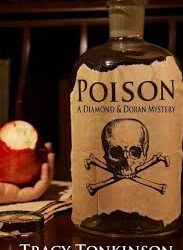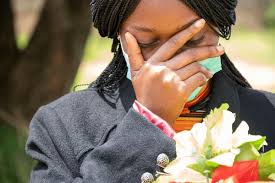HOPE Chinyama (not her real name) could not hold back the tears rolling down her chapped cheeks as she narrated how she ended up being a mother at 14.
She is one of the five teenage mothers being taken care of by Enesia Zimunya at her “place of safety” home in Unit H, Chitungwiza.
“I was abused by my brother last year,” Hope says as she chokes with emotion.
Her daughter was taken to a Harare orphanage home after her parents refused to take her in claiming that she was a product of incest.
She says when she discovered that she was pregnant, she fought hard to brush aside the urge to either commit suicide or abortion, as life became a nightmare after being chased out of her parents’ Highfield home in Harare.
Her peers at Zimunya’s “home of safety” are aged 14, 15 and 16.
Tendai* (15) lived with her visually impaired grandmother in Hopley, a squatter camp in Harare, before a neighbour raped her when she had gone to watch television at their house.
“He dragged me into his room and raped me,” she recalled.
The 15-year-old mother told source Weekender that she was supposed to write Grade 7 examinations this year.
“Although I felt relieved coming here, I was pained that I had to leave my grandmother.
“My father’s phone doesn’t get through. The last time I called, he told me that he was busy,” she said.
Panashe* (16) could not withstand living under her stepfather’s roof and eloped to her 23-year-old boyfriend in Waterfalls, who later disappeared after a police officer who lived nearby threatened to arrest him for bedding a minor.
Hope’s other 14-year-old fellow mate at the centre said she lost her mother at three and stayed with her grandmother in Bikita before she was later dumped in Mbare by her aunt.
Eventually, the minor was taken to her father by someone who knew him where she endured verbal and emotional abuse at the hands of her stepmother. She then decided to elope to her boyfriend’s home, where she found life even tougher until she found shelter at Zimunya’s home.
Zimunya started taking care of teenage mothers five years ago under an initiative dubbed Kukosha with the support of one Sue Austin.
She is registered to do her philanthropic work in Chitungwiza.
“The next time that you come here, you will see new faces and there are a lot of children who were born when their mothers stayed here,” Zimunya told NewsDay Weekender.
“Water, food and financial support are the greatest challenges. We last had tap water three days ago.”
A social worker with a local non-governmental organisation, Mwana Mwana, Daphne Malendima, commended Zimunya for reaching out to desperate teen mothers.
“The stories shared are so touching and it is our desire to assist by providing psychosocial support to the mothers to deal with the trauma.
“They also need to be reintegrated into the community, whether going to school or doing skills training,” she said.
Chitungwiza Municipality welfare administrator Aaron Mhonyera said the local authority and other stakeholders have a big responsibility to support Zimunya.
“Zimunya has shown passion, she deserves everyone’s support. I want to implore the whole community to support her initiative. If abandoned, these teenagemothers will end up abusing drugs,” he said.
According to a June 2023 National Assessment on Adolescent Pregnancies in Zimbabwe report, an estimated 1 706 946 antenatal care bookings were made at 1 560 healthcare facilities between 2019 and 2022.
Of these, 21% were adolescents aged 10–19 years. The report, produced by the Centre for Sexual Health and HIV/AIDS Research Zimbabwe, further states that adolescent pregnancy rate was 23.7% (337/1418) for adolescents aged between 10 and 19 years, and among the 337 pregnant adolesents, 4.0% (20) had disabilities.
Zimbabwe’s adolescent sexual reproductive health specialist, Blessing Tafadzwa Nyagumbo said the country is among many countries in sub-Saharan Africa with a high teenage pregnancy.
Source Zimbabwe Situation









